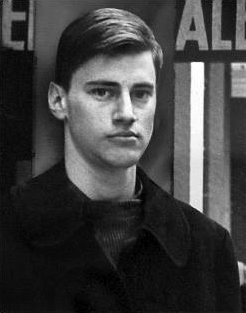|
Icarus's Mother
''Icarus' Mother'' is a one-act play by Sam Shepard. It was first staged at the Caffe Cino in 1965, directed by Michael Smith, a drama critic, with a cast that included John Coe, a veteran of the Living Theatre. It was included in the first published collection of Shepard's play scripts, entitled ''Five Plays'' (1966). Overview As the play opens, a group of five people (three men, two women) are digesting a big picnic meal and belching. They are lying on a lawn near a beach, while waiting for a fireworks display to begin. Although the characters don't specifically mention the Fourth of July, a number of patriotic references are used. A jet plane is flying overhead. Various kinds of funny but tense conflicts, word games, and mind games take place among the group. Two of the men, Howard and Bill, seem to be conspiring against the others. They send up smoke signals The smoke signal is one of the oldest forms of long-distance communication. It is a form of visual communic ... [...More Info...] [...Related Items...] OR: [Wikipedia] [Google] [Baidu] |
Sam Shepard
Samuel Shepard Rogers III (November 5, 1943 – July 27, 2017) was an American playwright, actor, director, screenwriter, and author whose career spanned half a century. He wrote 58 plays as well as several books of short stories, essays, and memoirs. He won 10 Obie Awards for writing and directing, the most by any writer or director. Shepard received the Pulitzer Prize for Drama in 1979 for his play ''Buried Child'' and was nominated for an Academy Award for Best Supporting Actor for his portrayal of pilot Chuck Yeager in the 1983 film ''The Right Stuff (film), The Right Stuff''. He received the PEN/Laura Pels Theater Award as a master American dramatist in 2009. ''New York (magazine), New York'' magazine described Shepard as "the greatest American playwright of his generation." Shepard's plays are known for their bleak, poetic, surrealist elements, black comedy, and rootless characters living on the outskirts of American society. His style evolved from the absurdism of hi ... [...More Info...] [...Related Items...] OR: [Wikipedia] [Google] [Baidu] |
